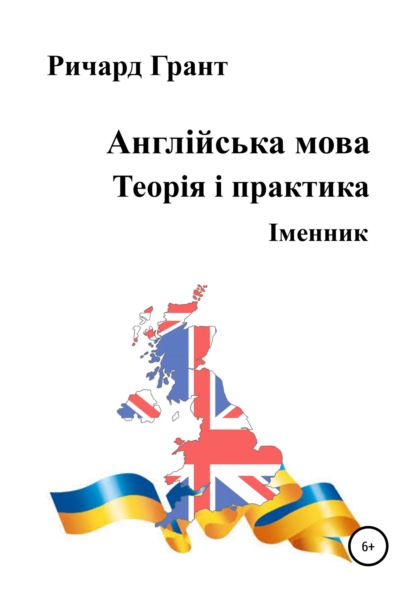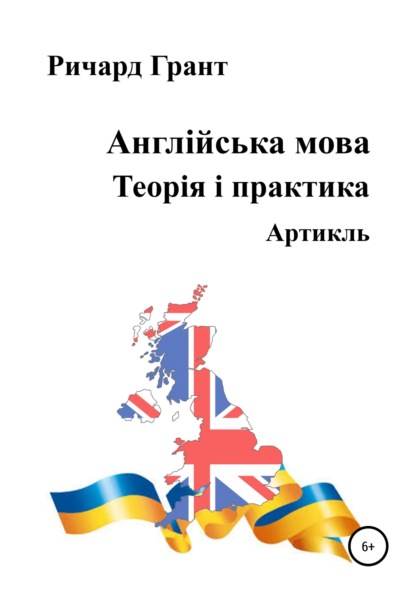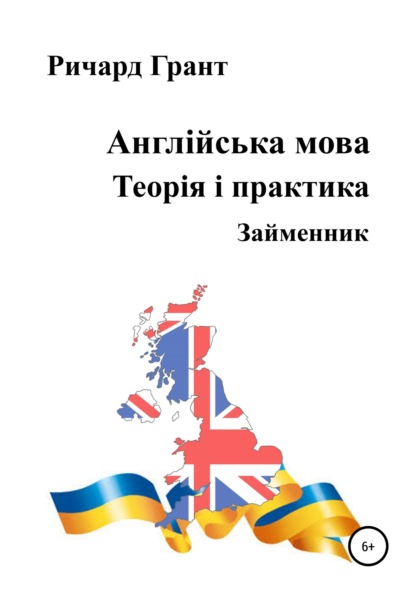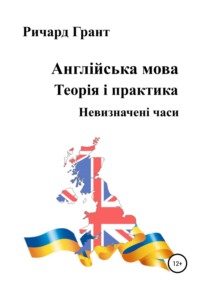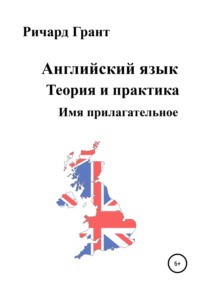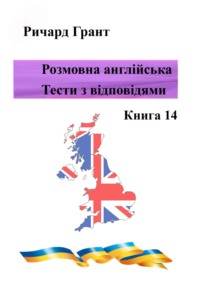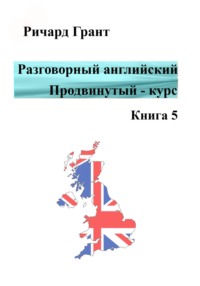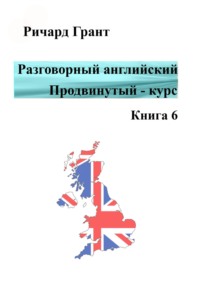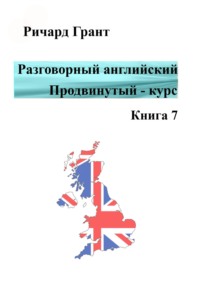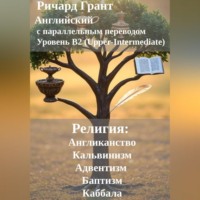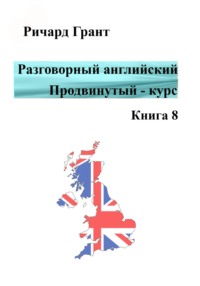
Полная версия
Англійська мова. Теорія і практика. Вживання часів
Вправа 17
Розкрийте дужки, вживаючи дієслова у Past Simple або Past Continuous.
1. She (to finish) cooking at four o’clock yesterday. 2. What your brother (to do) yesterday? – He (to play) computer games. 3. I (to do) my homework the whole evening yesterday. 4. We (to play) computer games the whole evening yesterday. 5. When father (to come) home, Pete (to sleep). 6. When I (to visit) my friends in Denmark, I (to buy) two presents for my family. 7. When I (to come) to school, the children (to stand) near the classroom. 8. I (to play) the piano at five o’clock yesterday. 9. We (to be) in a hurry because only twenty minutes (to be) left before the beginning of the performance. 10. The train (to start) at fifteen minutes to ten. 11. At half past four yesterday we (to have) dinner. 12. I (to begin) repairing my camera at six o’clock yesterday. 13. I (to do) my homework when mother came home. 14. My brother (not to play) tennis yesterday. He (to play) tennis the day before yesterday.
Вправа 18
Розкрийте дужки, вживаючи дієслова у Past Simple або Past Continuous.
1. When mother (to come) home, the children (to play) on the carpet. 2. When it (to start) raining, we (to swim) in the river. 3. We (to play) in the yard the whole evening yesterday. 4. He (to begin) to do his homework at four o’clock yesterday. 5. I (to play) the violin when my friend (to come) in. He (to invite) me to the theatre and I (to accept) the invitation with pleasure. 6. He (to put) on his coat and cap, (to open) the door and (to go) out. 7. We (to work) the whole morning yesterday. 8. At five o’clock yesterday Helen (to cook) soup. 9. I (to do) my homework yesterday. 10. My sister (not to play) the piano at four o’clock yesterday. She (to play) the piano the whole evening. 11. When I (to get) up, my mother and father (to drink) tea. 12. Yesterday at one o’clock I (to have) lunch at the canteen. 13. When I (to prepare) breakfast in the morning, I (to cut) my finger. 14. She (to play) the flute at four o’clock yesterday.
Вправа 19
Розкрийте дужки, вживаючи дієслова у Past Simple або Past Continuous.
1. He (to ring) up his friend and (to ask) him about the homework. 2. At this time yesterday I (to watch) a play by Chekhov at the theatre. 3. Mother (to cook) dinner at three o’clock yesterday. 4. What you (to do) when your sister (to come) home yesterday? 5. I (to do) my homework from five till eight yesterday. 6. When I came into the kitchen, mother (to cook). 7. When I (to come) to my friend’s place, he (to watch) TV. 8. When he (to come) in, I (to do) my exercises. 9. Last year I (to go) to the United States. 10. I (to meet) Nick at three o’clock yesterday. 11. When I (to come) to the theatre, my friend already (to wait) for me. 12. He (to come) back to Toronto on the 15th of January. 13. They (to go) to the wood last Sunday? 14. You (to have) supper at nine o’clock yesterday?
Вправа 20
Розкрийте дужки, вживаючи дієслова у Past Simple або Past Continuous.
1. I (to do) my homework at six o’clock yesterday. 2. She (to cook) the whole day yesterday. 3. When I (to see) my friends, they (to play) football. 4. What you (to do) at eight o’clock yesterday? 5. You (to go) to Great Britain last year? – No, I (to go) to France. 6. When I (to come) home, Kate (to play) the piano. 7. When I (to go) to the dentist’s, I (to brеak) my arm. 8. I (to go) to the institute when I (to see) him. 9. When they (to sail) down the river, they (to see) a little island. 10. He (not to go) to the shop yesterday. 11. I (not to play) the piano yesterday. I (to write) a letter to my friend. 12. We (to wash) the floor in our flat yesterday. 13. When I (to open) the door, the cat (to sit) on the table. 14. At this time yesterday I (to go) home.
Вправа 21
Розкрийте дужки, вживаючи дієслова у Past Simple або Past Continuous.
1. What you (to do) yesterday? – I (to translate) a very long article. 2. When I (to meet) John, he (to go) to the railway station. 3. When the teacher (to walk) into the classroom, the boys (to listen) to pop music and the girls (to eat) chips and (to drink) lemonade. 4. At this time yesterday we (to have) dinner. 5. They (to translate) a difficult text yesterday. 6. Nick (to go) to bed at ten o’clock yesterday. 7. I (not to play) the piano at four o’clock yesterday. I (to read) a book. 8. We (to wash) the floor in our flat from three till four yesterday. 9. When Kate (to open) the door, the children (to dance) round the fir tree. 10. You (to sleep) when I (to go) out. 11. When I (to ring) up my friend, he (to sleep). 12. When I (to go) to the museum, I (to see) a big crowd of people in the street. 13. She (to go) to the bank when I (to meet) her. She (not to go) to the doctor. 14. He (to write) a letter when I (to come) in.
Вправа 22
Розкрийте дужки, вживаючи дієслова у Past Simple або Past Continuous.
1. I (to open) the window at six o’clock yesterday. 2. Rick (to sleep) at eleven o’clock yesterday. 3. He (not to sleep) when father came home. He (to do) his homework. 4. You (to do) your homework yesterday? 5. When Tom (to cross) the street, he (to fall). 6. He (to read) on the sofa when I (to come) in and (to sit) down beside him. 7. While my grandfather (to watch) TV, he (to fall) asleep. 8. They (to play) in the yard in the evening yesterday. 9. What you (to do) when the accident (to happen)? – I (to walk) out of the hospital. 10. He (to make) a report when I (to leave) the meeting. 11. You (to go) to the cinema yesterday? 12. When we (to play) in the yard yesterday, it suddenly (to start) raining heavily. 13. When I (to go) to school the day before yesterday, I met Mike and Pete. They (to talk) and (to laugh). They told me a funny story. Soon I (to laugh), too. I still (to laugh) when we came to school. After school I (to tell) this story at home. My father and mother (to like) it very much. 14. You (to do) your homework from eight till ten yesterday?
Вправа 23
Розкрийте дужки, вживаючи дієслова у Past Simple або Past Continuous.
1. When I (to go) to school, I (to meet) my friend. 2. I (to walk) along the street with my friend when a tram (to pass). 3. When my friend (to come) to see me, I (to do) my homework. 4. They (to play) in the yard the whole evening yesterday. 5. He (to leave) the bank, when the thieves (to take) his money. 6. Yesterday he (to write) a letter to his friend. 7. I (not to see) Mike last week. 8. I (to see) Mike when he (to cross) the street. 9. When we were in the country last summer, I (to go) to the woods one day. In the woods I (to find) a little fox cub. It could not run. It (to injure) its leg. I (to decide) to help the cub. I (to bring) it home. Every day I (to feed) it and (to take) care of it. I (to do) it the whole summer. Now the fox cub is quite well. It (to leave) my house. It lives in the woods again. 10. Why she (to sleep) at seven o’clock yesterday? 11. When we (to go) to the cinema, we (to meet) grandmother. 12. She (to look) out of the window when I (to see) her. 13. When I (to go) to the stadium, I (to meet) Kate and Ann. 14. I (to clean) my teeth at eight o’clock in the morning yesterday.
Вправа 24
Розкрийте дужки, вживаючи дієслова у Past Simple або Past Continuous.
1. When I (to look) at them, they (to smile) at me. 2. When I (to open) the door, my friends (to sit) around the table. 3. He (to begin) repairing his bicycle in the morning yesterday. 4. He (to sit) at the table the whole evening yesterday. 5. When grandmother (to go) home, she (to see) many children in the yard. 6. We (to answer) the teacher’s questions when the headmistress (to enter) the class room. 7. When Nick (to ring) me up yesterday, I (to help) mother. 8. We (to go) to the wood in summer. 9. What you (to do) at six o’clock yesterday? 10. When you (to begin) doing your homework yesterday? 11. He (to repair) his bicycle the whole day yesterday. 12. What Nick (to do) when you came to his place? 13. When Henry (to walk) about in the forest, he (to find) a bear cub. 14. They (to drink) tea when I (to come) home. 15. He (to shave) when he (to hear) her scream.
Вправа 25
Розкрийте дужки, вживаючи дієслова у Past Simple або Past Continuous.
1. When the children (to walk) through the wood, they (to see) a fox. 2. When the teacher (to open) the door of the classroom, the pupils (to sit) at their desks. 3. I (to go) to bed at half past eleven. 4. We (to discuss) the latest news from three till four yesterday. 5. He (to finish) repairing his bicycle in the evening yesterday. 6. What you (to do) when I rang you up? 7. When we (to walk) about in the forest, we (to see) a hare. 8. He (to walk) along the river when a boat (to pass). 9. When I (to come) home, my sister (to wash) the floor. 10. He (to get) up at seven o’clock yesterday. 11. Yesterday the lesson (to begin) at nine o’clock. 12. When I (to read) the newspaper yesterday, I (to find) an interesting article on UFOs. 13. We (to play) badminton from nine till eleven yesterday. 14. I (not to sleep) at nine o’clock yesterday. 15. At half past ten yesterday I (to sleep).
Вправа 26
Розкрийте дужки, вживаючи дієслова у Past Simple або Past Continuous.
1. When I (to wash) the floor, I (to find) my old toy under the sofa. 2. The old man (to think) about his plan when he (to fall) asleep. 3. When Mike (to play) in the yard, he (to find) a ball. 4. Father (to come) home at six o’clock yesterday. 5. When somebody (to knock) on the door, she (to argue) with her husband. 6. You (to watch) TV yesterday? – Yes, we (to watch) TV the whole evening yesterday. 7. Kate (not to go) for a walk yesterday. She (to write) an essay the whole day yesterday. 8. What he (to do) yesterday? – He (to read) a book. 9. When granny (to read) a book on the sofa, she (to fall) asleep. 10. We (to listen) to an interesting lecture yesterday. 11. When I (to draw) yesterday, I (to break) two pencils. 12. I (to read) a book at six o’clock yesterday. 13. When Pete (to jog) in the park in the morning, he (to lose) his expensive mobile phone. 14. When you (to go) to bed yesterday? 15. We (not to go) on a walking tour last summer.
Вправа 27
Розкрийте дужки, вживаючи дієслова у Past Simple або Past Continuous.
1. When your father (to come) home yesterday? – He (to come) home at seven o’clock. 2. What he (to do) the whole evening yesterday? – He (to read) a book. 3. When I (to play) in the yard, I suddenly (to see) my old friend. 4. When I (to enter) the classroom, the teacher (to write) words on the blackboard and the pupils (to copy) them into their exercise books. 5. When I (to meet) Tom, he (to go) to the shop. 6. She (to fall) asleep at eleven o’clock yesterday. 7. When the police (to take) the thief to the car, I (to go) to the cinema to see the new Tom Cruise film. 8. I (to go) to bed at ten o’clock yesterday. 9. When my father (to come) home yesterday, my mother (to make) supper. 10. She (to sleep) when you came home? – No, she (to knit). 11. When Nick (to run) about in the yard, he (to fall). 12. They (to get) ready to go out when it (to begin) to rain. 13. When I (to look) out of the window, the children (to play) hide-and-seek. 14. Mother (to drink) tea at eleven o’clock yesterday. 15. When I (to come) home from school yesterday, my little brother (to sit) on the floor with all his toys around him. He (to play) with them. I (to tell) him to put his toys into the box as he (to make) too much noise.
Вправа 28
Розкрийте дужки, вживаючи дієслова у Past Simple або Past Continuous.
We (to walk) down the street in the direction of Mike’s house, when we (to see) him in the window of a bus that (to pass) by. He (to recognize) us, too, but he could not get off as the bus (to be) overcrowded. We (to be) very sorry that we (to have) no chance to speak to him. But we could do nothing and (to decide) to go back. At that very moment we (to hear) Mike’s voice behind us. “How funny,” he (to say), “I (to go) to your place when I suddenly (to see) you here. I am so glad to see you.”
Вправа 29
Розкрийте дужки, вживаючи дієслова у Past Simple або Past Continuous.
The sun (to go) down behind the hills when I (to reach) a village which (to be) only a few miles from the sea. The working day (to be) over, and the villagers (to come) home from the fields. Along the road two boys (to drive) cows and sheep in the direction of the village. I (to approach) a group of people standing near the road and (to ask) them if I could find a place in the village to spend the night. An old man (to say) he would help me. He (to take) me to his small cottage at the far end of the street. A fire (to burn) in the stove when we (to enter) the house. One girl of about eighteen (to prepare) supper in the kitchen while two other girls still (to do) something in the kitchen garden near the house. The old man (to invite) me to have supper with them. They all (to seem) to be nice people and we (to have) a friendly talk. After supper my new friends and I (to go) out into the garden. The moon (to shine) high in the sky, and the night (to be) warm and beautiful. That evening (to be) very pleasant, and I’ll remember it a long time.
Рiзниця мiж The Past Simple i The Present Perfect
1. Говоримо чи не говоримо, коли щось сталося.
У Present Perfect має значення факт вчинення дії і не має значення, коли саме вона відбулася. У Past Simple зазвичай вказується, коли саме відбулася дія.
Слова-маркери у Past Simple: yesterday (вчора), in 2015 (в 2015), ago (тому назад), when I was younger (коли я був молодший) та інші.
I have ridden a horse! – Я їздив верхи! (неважливо, коли це було)
I rode a horse yesterday morning! – Вчора вранці я їздив верхи! (конкретний момент у минулому)
2. Закінчений період часу або поточний.
Якщо ми говоримо про період часу, який все ще триває, вживаємо Present Perfect. Часто на поточний період вказують такі слова-маркери, як today (сьогодні), this week (на цьому тижні), this month (в цьому місяці) i this year (цього року).
Якщо період закінчений, використовуємо Past Simple. На нього вказують наступні слова-маркери: last week (минулого тижня), last month (минулого місяця), last year (минулого року).
I haven’t seen you in the office this week. – Я не бачив тебе в офісі цього тижня. (тиждень не закінчився)
I didn’t see Sofie at work last week. – Я не бачив Софі на роботі минулого тижня. (минулий тиждень закінчився)
3. Зв'язок з теперішнім часом і факт з минулого.
У Present Perfect завжди є якась прив'язка до сьогодення, тоді як за допомогою Past Simple можна просто викласти факти про минуле.
We’re so happy! We have learnt English! – Ми такі щасливі! Ми вивчили англійську! (ми щасливі зараз – прив'язка до сьогодення)
Ivan learned English at school. – Іван вчив англійську в школі. (факт з минулого)
Вправа 30
Розкрийте дужки, вживаючи дієслова у Present Perfect або Past Simple.
1. Helen speaks French so well because she (to live) in France. 2. Last night I (to feel) tired and (to go) to bed very early. 3. I (not yet to eat) today. 4. She just (to go) out. 5. It (to be) very cold yesterday. 6. She (to live) there last year. 7. Where you (to spend) your holidays? 8. He (not to eat) yesterday. 9. She (to leave) the room a moment ago. 10. When you (to meet) him? 11. The rain (to stop) and the sun is shining in the sky again. 12. You ever (to spend) your holidays in the Crimea? 13. You (to play) the piano yesterday?
Вправа 31
Розкрийте дужки, вживаючи дієслова у Present Perfect або Past Simple.
1. We (not yet to solve) the problem. 2. I (not to see) him since 2006. 3. The rain (to stop) half an hour ago. 4. While travelling in the Crimea, I (to meet) your friend. 5. You (to play) the piano today? 6. When it all (to happen)? 7. How many mushrooms you (to gather)? 8. Mary (to buy) a new hat. 9. I never (to visit) that place. 10. What you (to prepare) for today? 11. The morning was cold and rainy, but since ten o’clock the weather (to change) and now the sun is shining brightly. 12. Where you (to put) the newspaper? I want to read it, but cannot find it anywhere. 13. I (to buy) a pair of gloves yesterday.
Вправа 32
Розкрийте дужки, вживаючи дієслова у Present Perfect або Past Simple.
1. He (to visit) that place last year. 2. Look at this birdhouse. Mike (to make) it himself. He (to make) it last Sunday. 3. Show me the dress which you (to make). 4. The new school (to begin) working last year. 5. The wind (to blow) off the man’s hat, and he cannot catch it. 6. I just (to get) a letter from Tom. 7. Where you (to put) my pen? I cannot find it. 8. Oh, how dark it is! A large black cloud (to cover) the sky. I think it will start raining in a few minutes. 9. At last I (to do) all my homework: now I will go out. 10. The weather (to change), and we can go for a walk. 11. You (to take) any photographs while travelling in the south? 12. You (to see) Mary today? 13. Oh, close the window! Look, all my papers (to fall) on the floor because of the wind.
Вправа 33
Розкрийте дужки, вживаючи дієслова у Present Perfect або Past Simple.
1. The building of the house (to begin) early in April. 2. The wind (to change) in the morning. 3. He (to be) abroad five years ago. 4. When you (to see) Mary? – I (to see) her last week. 5. When you (to open) the window? – I (to open) it ten minutes ago. 6. The rain (to stop) but a cold wind is still blowing. 7. We (to travel) around Europe last year. 8. You (to be) in the Caucasus last year? 9. Your mother (to promise) to take you to the theatre? 10. The sun (not to rise) yet, but the sky in the east is getting lighter every minute. 11. We already (to solve) the problem. 12. My father knows so much because he (to travel) a lot. 13. They (to leave) England when he (to be) still a child.
Вправа 34
Розкрийте дужки, вживаючи дієслова у Present Perfect або Past Simple.


